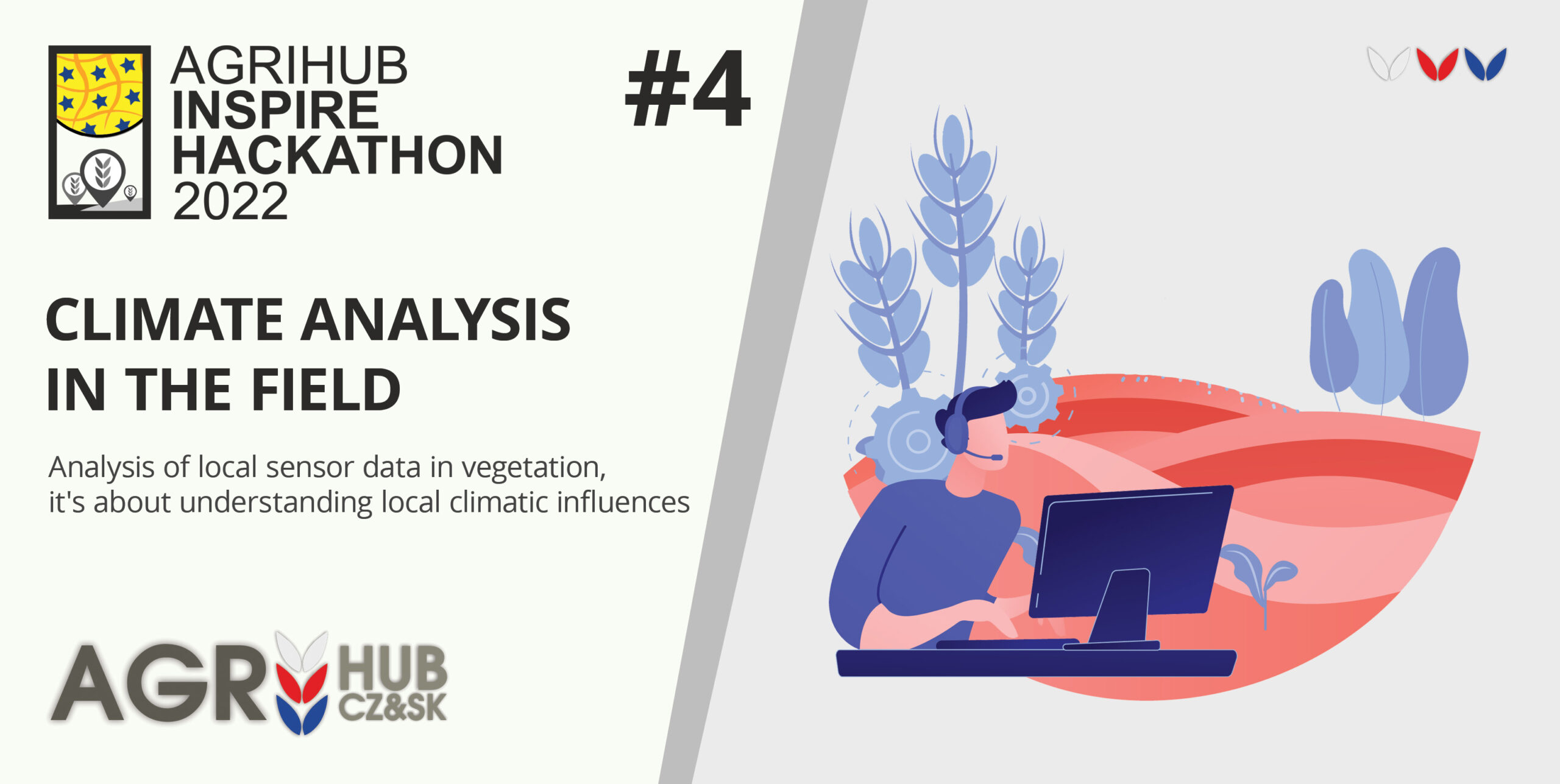MENTORS: Tereza Samanova, Karel Jedlicka, Michal Kepka
In the Autumn AgriHub INSPIRE HACKATHON 2021, the challenge Extreme weather aimed to seek for:
- Exploitation of the possible use of Copernicus Emergency Management services including European Flood Awareness System and European Drought Observatory
- Integration of the information from volunteer observatories of extreme events repositories to provide additional source of information to be assimilated with traditional observations available or to complement missing observations (e.g., hail) to be used for e.g., insurance claims.
- Integration of VGIs and citizen science data to validate/assimilate/train remove observations (e.g., crop diseases, grow monitoring)
As a result, the challenge Extreme weather has discovered that, for farmers, it is not their main problem to make practical use of the awareness and observatory systems, but more to have a look at the micro-climatic conditions and specialties in their properties and their specific parts to plan well the crop management and to prevent potential damages caused by extreme weather conditions. Thus the challenge has, based on brainstorming and discussions within the challenge team prepared a draft project called System of smart growth and crop protection reflecting the current micro-climatic development and weather forecasts respecting the individual position of the field.
Processing of sensor data from very detailed sensor network deployed on large field block showed potential of a completely different level of heterogeneity mapping of such field blocks. The problem is to minimize the number of sensors deployed on the field every season to a reasonable amount. When the initial zoning is defined, external data sources can be utilized to model conditions in particular zones of such field blocks based on historical locality conditions and model predictions.
Ambition of the challenge
The concept of the above-described project needs to be validated in multiple locations in CZ and SK, respecting their individual conditions (latitude, altitude, average precipitation, windiness and other indicators of local microclima). Thus, the inclusion of the experimental farms into this challenge is crucial.
On the other hand, the challenge will be seeking also for the existing examples of good practices already running within experimental smart farming systems and systems of observation and measurements in the fields that deals with weather and climate conditions monitoring.
- The aim of this challenge will be, therefore:
- Collect the relevant examples from practice
- Validate the theoretical basis of the System of smart growth and crop protection
- Develop substance of new product (system) able to enter soon on the market working with observations, measurements, sensors and predictions dealing with weather forecasts and climatic conditions that would help farmers with management of their properties/lands/fields within the principle of smart farming, respecting the climate, weather and specific micro-climatic conditions.
The main ambition of the insitu observations assessment is to define the critical number of sensors for a zoning definition and sustainability of such zoning for further seasons with support of available global data and models.
Next steps
The challenge continues and more develops the former topic Extreme weather and meets the current needs and requirements of the farmers: they are not keen on macro-data collection but on having access to the history and prediction of the conditions in their individual property. The challenge will collect best practices and data available within similar EU and national projects and forward the technological solution (System of smart growth and crop protection reflecting the current micro-climatic development and weather forecasts respecting the individual position of the field) towards its introduction on the market.
It can help farmers to get very detailed information about the field blocks and improve the variability of interventions planning and applications to minimize expensive inputs.
The registration for the challenges is open! Register for this hackathon challenge HERE.

